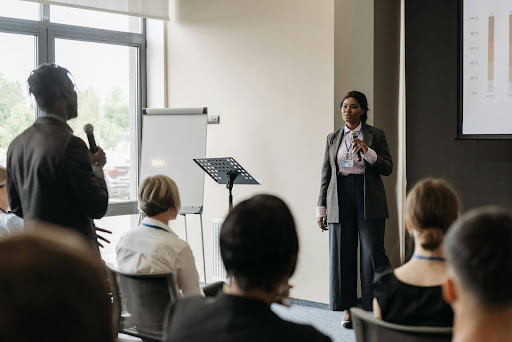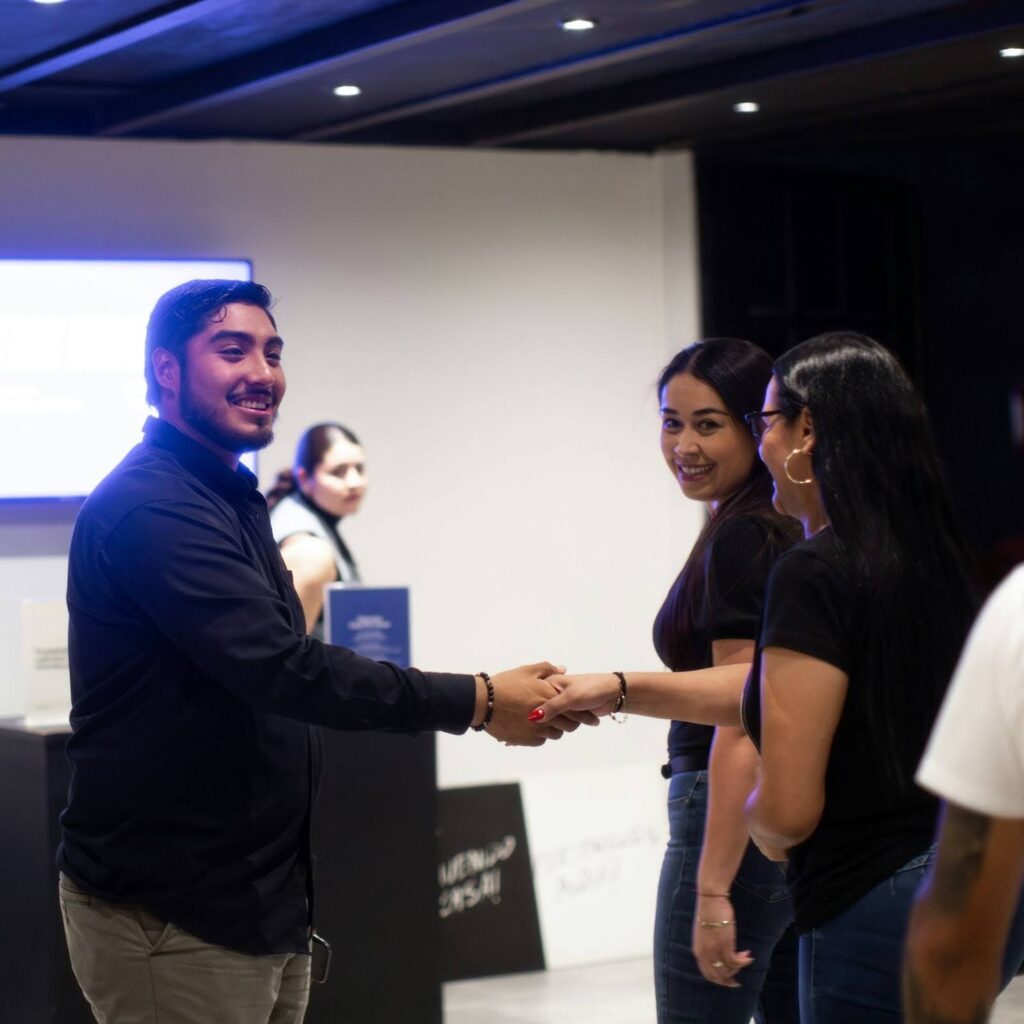By Asimina S. Hamakiotes
Opening remarks
When thinking about graduate school, we often think of milestones that include passing qualifying exams, preparing oral exams, writing papers, and defending our thesis. An aspect that is often overlooked or forgotten is attending conferences successfully. Regardless of whether you attend a conference as a speaker or participant, it is an important part of graduate school that allows you to get your name out there and network through meeting people in your field.
How to find conferences to attend
Talking to your advisor about conferences to attend is a great place to start since they will likely be able to guide you by suggesting (local) conferences in your field that are also friendly for graduate students. Another way to find out about conferences is through browsing other people's websites. For example, if there is a mathematician in your field whose work you’re interested in, then you should go to their website/CV and look at what conferences they have attended or are planning to attend. There are also some websites for specific fields that list all future conferences. For example, number theorists might be interested in this website.

How to find people to meet at conferences
Many conferences will post a participants list or a schedule with speakers, titles of talks, and abstracts. Before attending a conference, it is worth taking the time to look through this list and see if there is anyone in particular you are excited to meet or whose talk you are especially interested to attend. Attending conferences can be overwhelming, especially if the conference is large, so narrowing it down to meeting a few people can make the experience less overwhelming.
Whenever I am going to attend a conference, I make a list of all the new people I would like to meet and make it a goal to introduce myself to at least two of them. I usually generate this list by choosing people whose names I see on a lot of papers that interest me; people whose books/notes I’ve read and found very helpful; or people who have collaborated with people I know. Once you’ve come up with a list of people you’d like to meet, it’s time to figure out when to meet them and what to say to them!
When to network at conferences
At every conference, you should take advantage of coffee breaks and lunch. These breaks are the perfect opportunities to meet people and talk! Conferences can be exhausting, but you should force yourself to talk to/meet at least one person during a coffee break. It’s okay if you need to take some coffee breaks to sit by yourself and recoup, but make sure you are not skipping all of the socializing parts of the conference.
Sometimes it’s easy to have a friend group and always grab lunch with the same people at every conference since that’s what’s most comfortable for us; however, you should push yourself to have lunch with new people too! I know this can be scary, but you never know who you might meet in a new lunch group. This could lead to future collaborations, job opportunities, friendships, great advice, and more, but you will never know unless you try to branch out.

How to network at conferences
Suppose you have come up with a list of a realistic number of people you’d like to meet at a conference. How do you talk to them? Whenever you meet someone, you should introduce yourself: tell the person your name, where you go to graduate school, what year you are in, and what you’re interested in studying. You should also ask them for the same information (even if you have looked them up before the conference and know the answers). This is easier said than done, but there are also other ways you can initiate conversations with people.
One way you can do this is by attending their talk and asking them a question afterwards. If the speaker has a lot of questions after their talk, then you can wait and ask them during a coffee break or lunch. This option is nice because you will get more one-on-one time with the speaker as opposed to one answer from the speaker after their talk. Another way to start a conversation is by introducing yourself and telling the person you really enjoyed reading their book/paper/notes. Everyone loves a good compliment and (probably) no one is going to quiz you on how well you know their work. Sometimes the most “famous” people seem to be the most intimidating, but oftentimes they are the nicest!
Closing remarks
I find that at conferences people love to meet young, motivated early career mathematicians like graduate students, so it’s enough to just talk about what you’re working on, ask questions, and be yourself. Even if you’re not doing any research yet, you can still introduce yourself to people and share your enthusiasm and passion for math. Attending conferences is a great way to meet people in your research area and share your work with the community!

Asimina Hamakiotes received her Ph.D. from the University of Connecticut in 2025. She will be starting a postdoc at Fordham University in the fall. In her free time, she likes to do Brazilian jiu-jitsu, judo, and take her German shepherd on long walks.
Get conference-ready and make your 2025 MAA MathFest experience count—register today and start planning your path to connection, learning, and inspiration.
